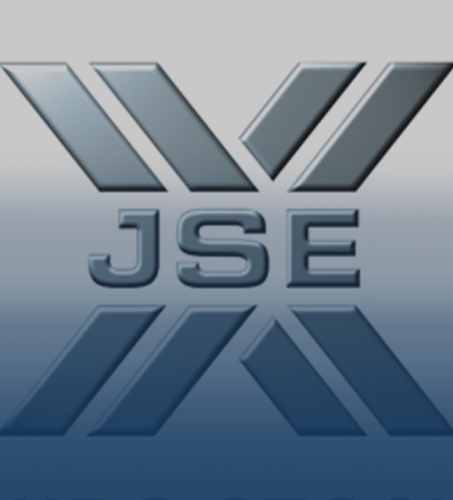What is the South African Reserve Bank (SARB)?
Established in 1921 as a direct result of the abnormal monetary financial conditions which World War 1 had brought, the SARB is the central bank of SA.
The SARB is responsible for the following:
- Monetary policy: Protecting the value of the rand and using interest rates to keep inflation low and steady.
- Financial stability: Identifying and mitigating risks that may disrupt the SA financial system.
- Prudential regulation: Regulating financial institutions in SA.
- Financial markets: Managing SA’s gold and foreign exchange reserves.
- Financial surveillance: Regulating cross-border transactions.
- Payments and settlements: Ensuring the safety and soundness of the national payment system.
- Statistics: Providing statistics that present an overview of SA’s economic situation.
- Research: Supporting policy decision-making.
- Banknotes and coin: The SARB has the sole right to make, issue and destroy banknotes and coin in SA.
As you can see, the SARB has various mandates and tasks to fulfil. However, this article focuses on FINANCIAL SURVEILLANCE, i.e., regulating cross-border transactions with respect to individuals.
Read more about the South African Reserve Banks 50 Basepoint rate hike here.
What are cross-border transactions?
These are financial transactions where the payer and the recipient are based in different countries. The SARB is responsible for the daily administration of exchange controls in SA, including monitoring ALL cross-border transactions. To do this, the SARB appoints certain registered banks as Authorised Dealers in foreign exchange with limited authority (ADLAs).
How does this affect you?
Every transaction you undertake that goes ‘across the border’ has to be declared to the SARB, e.g., your foreign investment allowance of R10mn AND your discretionary allowance of R1mn p.a. These movements are monitored by the use of Balance of Payment (BoP) forms which are completed when the transaction takes place.
HOWEVER, what happens when the transaction is not technically going across the SA border, i.e., it is a transaction with an SA resident but does not involve the SA banking system, and no BoP form is completed?
- Does it have to be approved by the SARB?
- Does it have to be reported to the SARB?
- Does it need to be regularised with the SARB?
- Does it need to be declared in terms of a Voluntary Disclosure Programme (VDP)?
- What are the consequences of not reporting a transaction?
- Do penalties apply if a transaction is not declared?
To know the answers to the above, it is important to understand the detail of what you have either done or are going to do, and often the answer to the above questions is, ‘Well, it depends …….”.
Examples of which transactions need to be considered for submission to the SARB, bearing in mind that Joe Soap is an SA resident, include the following:
- In 2012, Joe Soap inherited a property offshore but has never declared it to the SARB.
- In 2016, Joe Soap gave his daughter in the US a lump sum but paid her from his existing offshore account with funds sent offshore from SA.
- In 2020, Joe Soap was paid a sum of money by his sister, who lives in Malta, into his offshore account.
- Joe Soap has received a distribution from an offshore trust into his offshore bank account.
- Joe Soap took travellers’ cheques in the ’90s when going on holiday and deposited the funds into a bank account offshore.
All of these are cross-border transactions and, depending on the detail, may or may not have to be declared to the SARB. So, it is important to look at the specific circumstances of the transaction and when it was done. In the 2022 budget, several amendments were made. However, suppose a transaction took place before 23 February 2022. In that case, the old rules still apply, and the transaction needs to be regularised and declared to the SARB via an Authorised Dealer, i.e., your bank.
Have you been involved or intend to undertake any of the following?
- Received funds as a donation from a non-resident?
- Received funds as a loan from a non-resident?
- Transferred funds to an SA resident offshore?
- Received an inheritance offshore from a non-resident estate?
- Received an inheritance offshore from a SA estate?
- Received distributions offshore from an offshore trust?
- Did you declare all your assets if you immigrated to SA?
There are many variations on the above which could mean you are in contravention of SA’s foreign exchange regulations, and it is important to address them so that any future transactions are not ‘tainted’ by old transactions that are non-compliant.
This article does not seek to address any tax issues that fall under the auspices of the South African Revenue Service (SARS) and NOT the SARB. Still, all cross-border transactions are subject to local tax disclosure and compliance.
If you have queries or need assistance, please contact Di Haiden or Kate Trollip, and we can point you in the right direction to resolve your issues.
Please note that any contravention of exchange control regulations may be subject to a penalty. Now that the financial world has become far more integrated and financial data are shared between jurisdictions, it is essential to have your affairs in order.
At Anchor, our clients come first. Our dedicated Anchor team of investment professionals are experts in devising investment strategies and generating financial wealth for our clients by offering a broad range of local and global investment solutions and structures to build your financial portfolio. These investment solutions also include asset management, access to hedge funds, personal share portfolios, unit trusts, and pension fund products. In addition, our skillset provides our clients with access to various local and global investment solutions. Please provide your contact details here, and one of our trusted financial advisors will contact you.




